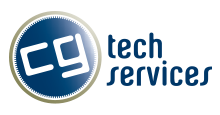Wearable tech and mobile apps are great examples of innovations that significantly improve patient care. As a healthcare provider, you’ve likely had patients ask you about which healthcare apps and wearable technology they should be using. Here are the things you need to consider when making a recommendation.
What to consider when picking a health app or wearable tech
Big data’s positive effects on healthcare readmission
Business intelligence (BI) has fueled the growth of many businesses through the years, especially in the finance and manufacturing industries. Today, BI and big data also benefit healthcare businesses that are aiming to improve their processes and lower their readmission rates.
4 Important factors about HIPAA and your IT
Medical records are private and their exposure could lead to negative consequences such as social stigma and job discrimination. The Health Insurance Portability and Accountability Act (HIPAA) protects these data and grants patients the right to view their own health information so that they can enjoy more control over their care.
Social media guidelines to stay HIPAA-compliant
HIPAA was established to protect the privacy of medical providers and their patients. And while there are no specific guidelines when it comes to social media usage in healthcare, every healthcare organization must implement security protocols that adhere to privacy policies.
The benefits and drawbacks of EHRs
Numerous digital advancements enable healthcare organizations to address several key industry challenges, such as safeguarding medical records and providing better care management for patients. Electronic health records (EHRs), in particular, allow quick access to patient records, helping healthcare organizations diagnose patients more effectively, reduce medical errors, and provide safer care.
IoT in healthcare: Addressing security and privacy issues
From mobile apps that keep track of daily medication to smart operating room systems, the Internet of Things (IoT) is delivering greater convenience and functionality to healthcare practitioners and patients alike. However, the proliferation of IoT devices also brings new risks, vulnerabilities, and security challenges.
Preventing insider threats in the healthcare sector
Insider threats are security risks that come from within your organization. They could be any of your current or former employees, contractors, or associates who have knowledge about your computer systems and can expose your data. They are a major issue in many industries, the healthcare sector included.
The benefits of cloud computing in healthcare
Cloud computing is gradually becoming the norm for healthcare organizations around the world. Whether via a browser-based tool or a mobile app, it’s easier than ever to deliver patient care from anywhere with an internet connection. If you’re still hesitant to embrace cloud technology, it’s time to reconsider.
How does telemedicine help patients?
Telemedicine means exactly as it sounds — a medical service delivered via telephone or any communications platform. Nearly one year into the COVID-19 pandemic, telemedicine has proven itself to be viable and valuable for patients and caregivers alike.
How AI is revolutionizing healthcare
Artificial intelligence (AI) has the potential to radically change the face of the healthcare industry — in fact, it already has. Here are some of the ways that AI has benefited medical professionals and patients alike.
Virtual personal health assistants
At the helm of the AI revolution are virtual personal health assistants.
